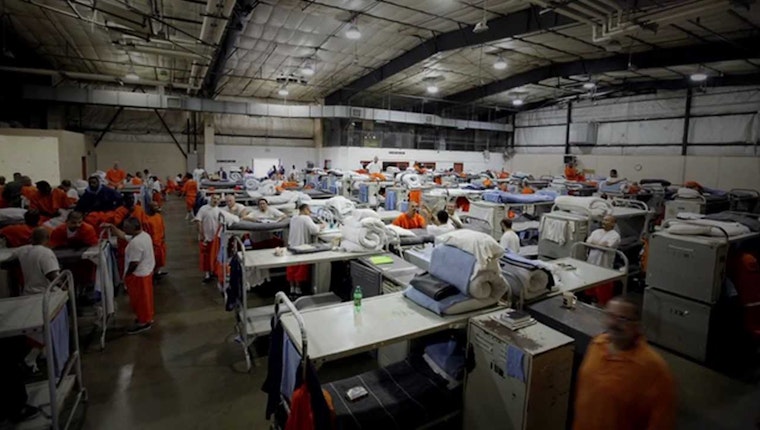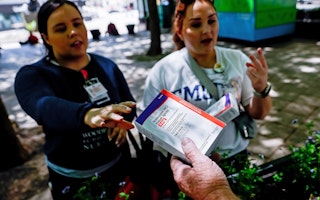Parallel Universes: Human Rights and International Drug Control
By Peter Sarosi

Last week the UN invited delegates to celebrate 100 years of "successful drug control" at the 55th session of the Commission on Narcotic Drugs in Vienna. In the above short film, we at the Hungarian Civil Liberties Union (HCLU) sought to provide an alternate perspective, exposing the human rights violations that result from the current international drug control system, in which the global war on drugs marches blindly on.
A litany of human rights abuses are recounted in the film: prisons overcrowded with nonviolent drug offenders; in Asia, hundreds of thousands of drug users detained without trial for uncertain periods or sent by force to ‘rehabilitation centers’ where they are beaten, starved and tortured in the name of treatment; death penalty for drug offenses; the denial of life-saving HIV prevention and drug treatment; and the displacement of indigenous people due to crop eradication campaigns.
Paul Hunt, the former UN Special Rapporteur on the right to the highest attainable standard of health, once said that the international drug control and human rights systems exist in parallel universes: “This widespread, systemic abuse of human rights is especially shocking, because drug users include people who are the most vulnerable, most marginal in society. Despite the scale of the abuse, despite the vulnerability, there is no public outrage, no public outcry, no public inquiries, on the contrary: the long litany of abuse scarcely attracts disapproval. Sometimes it even receives some public support.”
Indeed, the failure of international drug conventions to protect human rights is an ongoing travesty. The UN Office on Drugs and Crimes itself acknowledged in a report in 2009 that the Single Convention on Narcotic Drugs, signed just over 50 years ago, has several unintended negative consequences on human rights. Bridging the gap between these parallel universes, it would seem, is not unthinkable. In the run up to CND, the UN released a joint statement calling for the closure of compulsory drug detention and rehabilitation centers, and the release of detained individuals. This welcome development follows years of campaigning from NGOs.
As the Commission on Narcotic Drugs came to a close in Vienna, it became apparent, however, that human rights concerns had failed to feature adequately on the agenda. The ability for NGOs to participate in discussions remained limited and the struggle to be heard and to influence decision-makers continues. Most governments, especially those responsible for the terrible abuses highlighted in this film, refuse to put human rights on the debating table. Such complacency is no cause to be celebrated.
Last year, a group of NGOs led by Transform Drug Policy Foundation initiated an international campaign urging governments to count the costs of the war on drugs. Seven major costs were identified, including human rights. This is the first of seven films made by HCLU focusing on each of these policy areas.
Peter Sarosi is director of the Drug Policy Program at the Hungarian Civil Liberties Union, an Open Society Foundations grantee.


